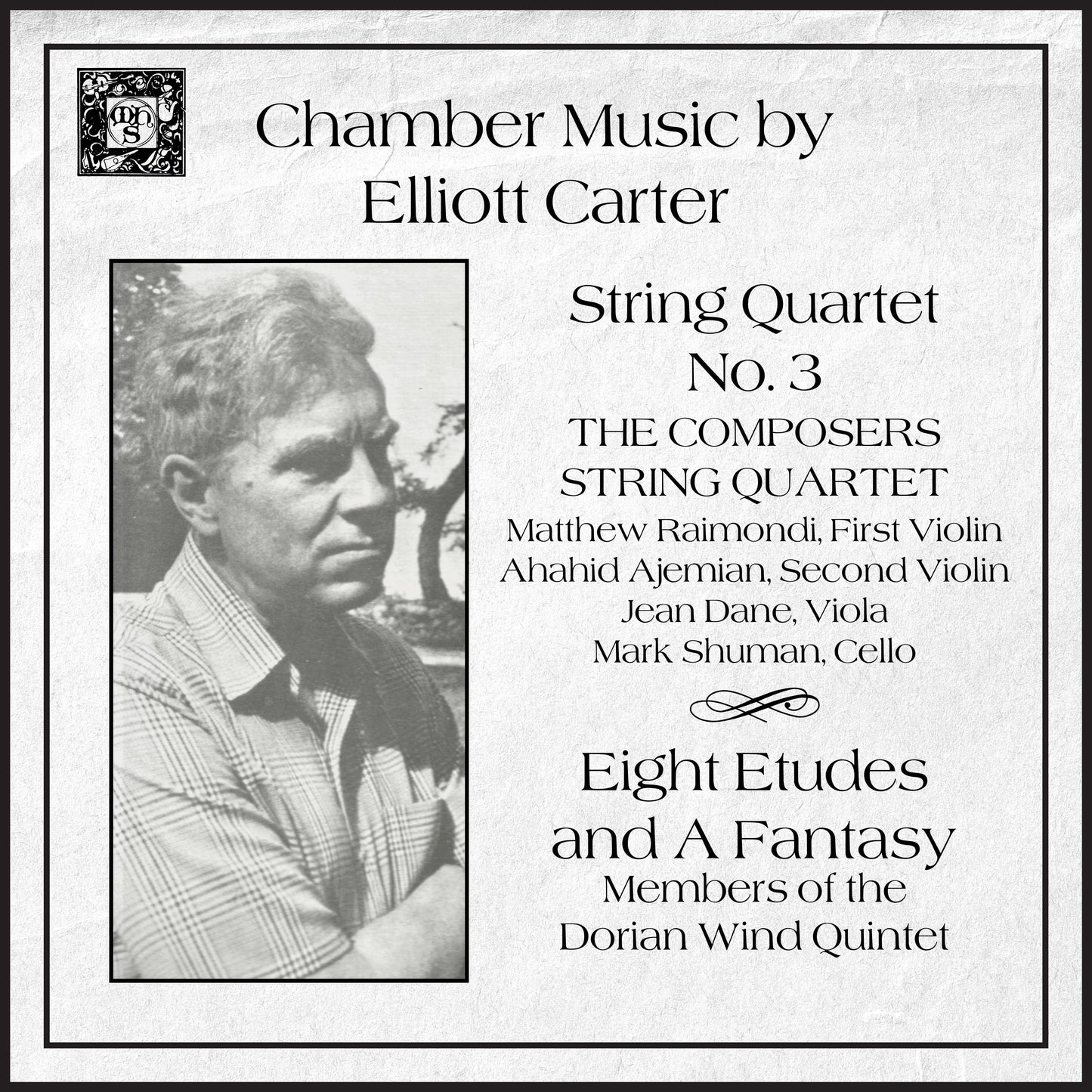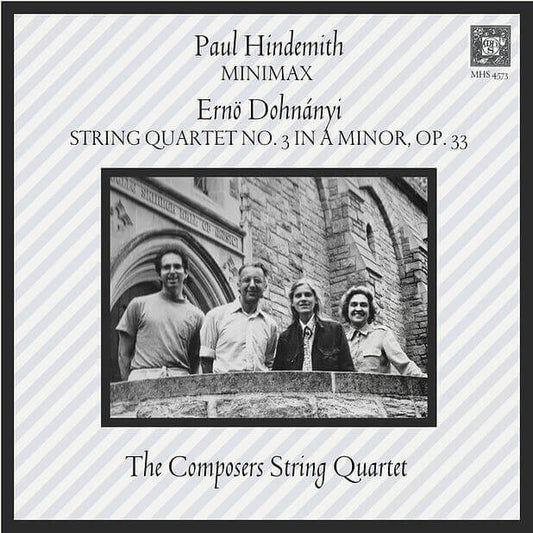1
/
of
1
COMPOSERS STRING QUARTET: THE MUSICAL HERITAGE SOCIETY RECORDINGS
Carter, Elliott: Chamber Music - Composers String Quartet, Members of the Dorian Wind Quintet
Carter, Elliott: Chamber Music - Composers String Quartet, Members of the Dorian Wind Quintet
AVAILABLE ON MAJOR STREAMING SERVICES
Elliot Carter was born on December 11, 1908. While in high school he met Charles Ives, whose music and ideas greatly impressed him. After graduating from Harvard he went to Paris to study with Nadia Boulanger for three years. Although the works he wrote after returning to the States reflect Mlle Boulanger's influence, the impact of lves's music, and that of Cowell, Varese, Ruggles, and Ruth Crawford, can be heard in the music of the late 1940s. With the String Quartet no. 1 of 1951, Carter arrived at his distinctive personal idiom characterized by tempo modulation, the counterpoint of sharply contrasted ideas, and large-scale formal designs of great originality. He has won the Pulitzer Prize for Music twice and has also received the Gold Medal of the American Institute of Arts and Letters and the Von Siemens Musikpreis.
Carter has made many profoundly original discoveries in rhythm, harmony, and form, but perhaps his most important achievement has been the renewal of instrumental virtuosity in his works. His music expands the challenges made of performers, but rewards performers by making their virtuosity the very center of the musical expression. In his efforts to rekindle the fires of live performance Carter has moved very much against the main currents of the century, for performers and composers have become increasingly estranged. After 1920 performers clung tenaciously to the fixed canon of the "standard repertory." Composers retaliated by replacing live performers with mechanical ones, or by reducing live performance to mechanical tasks of precision or repetition that would be better achieved mechanically, or, finally, by demanding that performers become composers and improvise pieces from a minimal number of directions. Meanwhile the technical level of performance has increased, but instrumentalists have mostly applied their skills to the same old challenges. As Carter noted 25 years ago, the orchestral works of Mahler, Strauss, and Ravel have remained the standard of virtuosity -- a statement that remains true.


00:00
/
00:00
•
skip_previous
play_circle_outline
pause_circle_outline
skip_next
Also Available from The COMPOSERS STRING QUARTET: THE MUSICAL HERITAGE SOCIETY RECORDINGS
-
STREAMING
Carter, Elliott: Chamber Music - Composers String Quartet...
ExploreRegular price $0.00Regular priceUnit price / per -
STREAMING
Hindemith: Minimax; Dohnanyi: String Quartet No. 3 in A M...
ExploreRegular price $0.00Regular priceUnit price / per



